THE Science Museum has inaugurated an “Adani Green Energy Gallery” that was funded by an Indian business house.
The gallery, which has been three years in the making, explores how mankind could combat the effects of climate change.
One exhibit from India shows how water funnelled through terracotta pots can be used to cool buildings as a muchcheaper alternative to air-conditioning.
Another intriguing display is the Bersey Electric Cab, which plied on the streets of London as far back as 1897. A total of 77 were built by the Great Horseless Carriage Company and the electrical vehicles, nicknamed “hummingbirds” because of the sound they made and their distinctive bright yellow livery, were initially very popular.
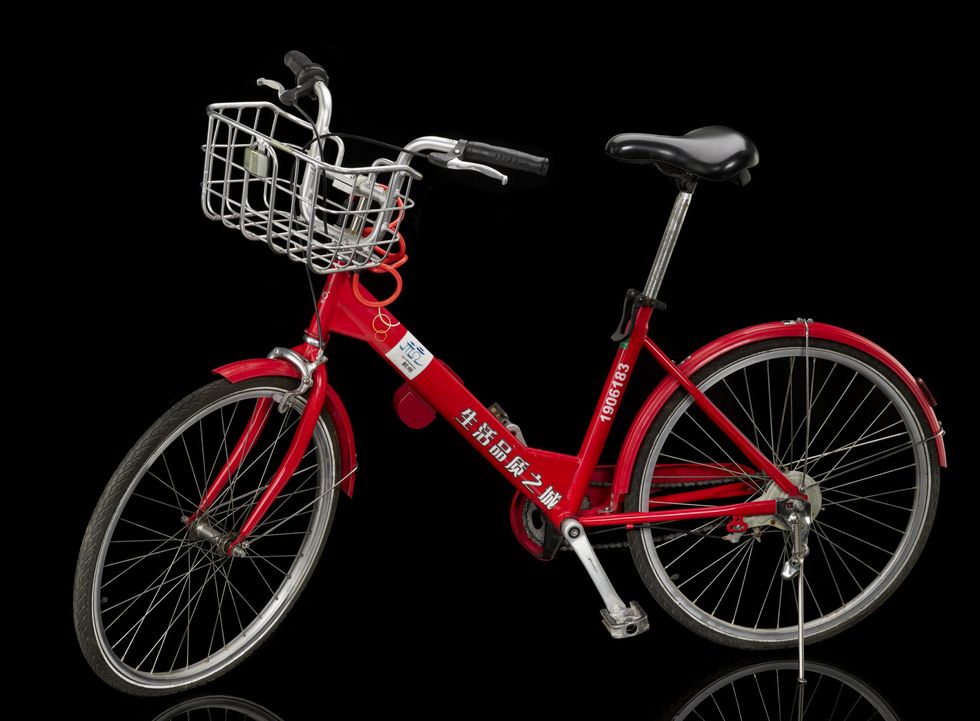
The history of global warming might well have been very different had they not been discontinued in 1899 in favour of the easier-to-maintain internal combustion engines.
Among other exhibits are the “little red bike” from the 116,000-strong Hangzhou Public Bicycle sharing scheme in China; air-source heat pumps that might replace conventional boilers in the UK; underwater turbine blades; and the ZETA (Zero Energy Thermonuclear Assembly) experiment to get energy from nuclear fusion attempted by the UK Atomic Energy Authority in Oxfordshire in the 1950s.
Nuclear fusion, where hydrogen atoms are fused to create energy, as in the sun (this is the opposite of fission – when uranium and plutonium atoms split to produce atomic bombs) has not worked yet, but would be the holy grail that would solve the problems caused by burning fossil fuels.
The idea is to keep the gallery – entrance is free of charge – going for at least 10 years.
Oliver Carpenter, the gallery’s lead curator who gave Eastern Eye a tour of the exhibition, said: “This isn’t a six-month exhibition, this is a long-term gallery. We’re focused on trying to make this gallery as relevant in 10 years’ time as it is today.”
He also expressed the hope that in 10 years, vehicles using petrol and diesel in London would be outnumbered by electric cars.
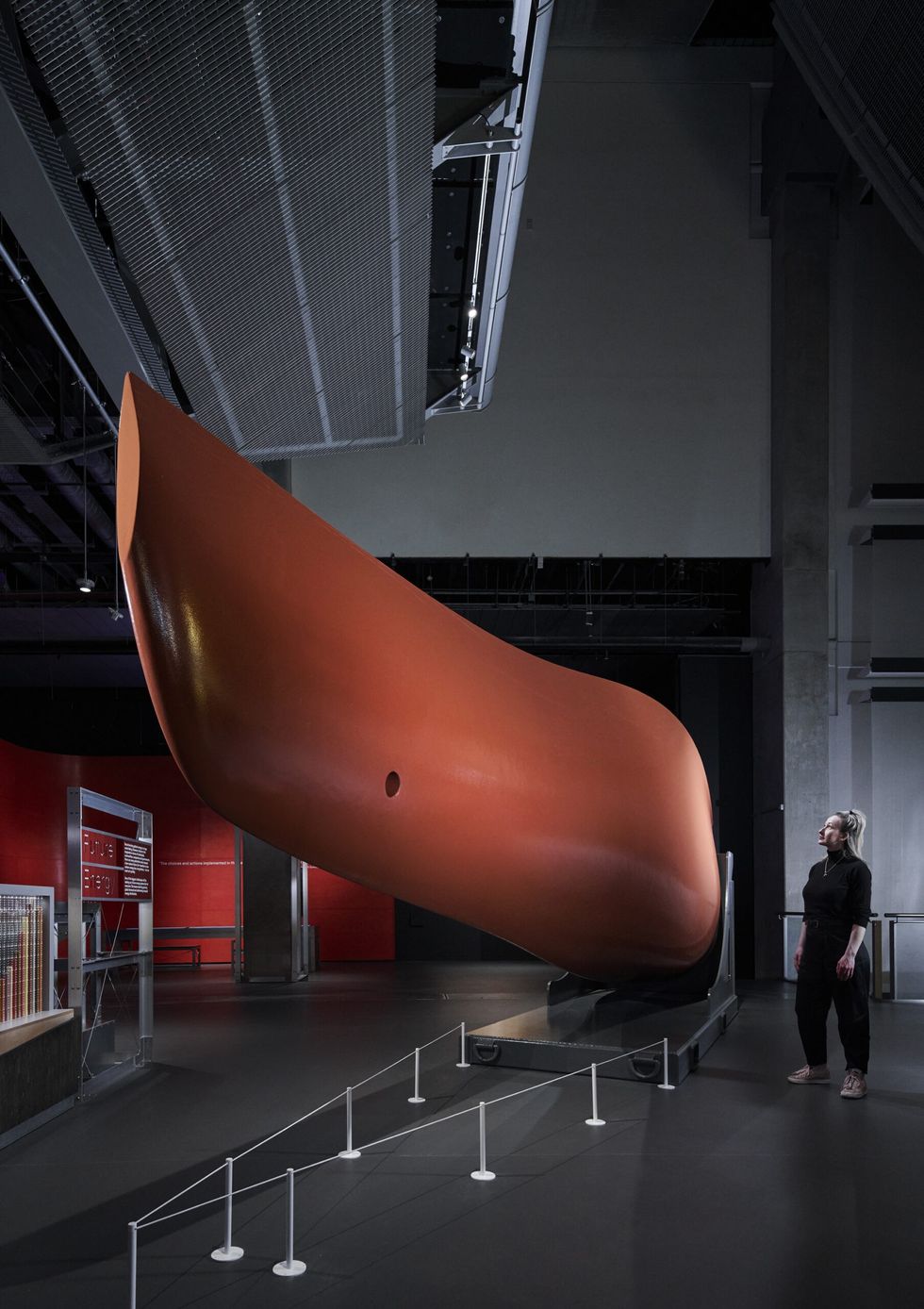
And on nuclear fusion, he said: “If we suddenly crack fusion, that would take off as a great new mainstream energy source.”
He explained what the open plan exhibition was trying to achieve: “This gallery shares contemporary stories of individuals, organisations and communities all imagining the future of low-carbon energy, but it also spotlights some of the earliest ideas and technologies created by the imaginations of previous generations.
“By taking a long view of the energy revolution and showcasing impressive technologies of the past, alongside today’s low-carbon options, we hope to inspire visitors to imagine a low-carbon energy future.”
During his tour, Carpenter said: “We’re in the middle of an energy revolution. This is a gallery all about the most pressing issue of our time. In order to avoid the worst impacts of climate change, we need to urgently transition towards lower carbon sources and uses of energy. We’ve got this really exciting mix of contemporary and historic objects. Burning anything releases carbon emissions into the atmosphere.”
He drew attention to methods of climate and energy modelling, “ways scientists can see what the climate is going to be in the future and how you can respond with different kinds of energy systems”.
Measurements on what was happening on earth could be taken from “under the ground, from the sea, from the air and from space as well with satellites”.
He pointed out giant concave mirrors which followed the sun and focused heat on a central point. There were solar farms in Morocco, in the United States, “anywhere where there’s lots of sunshine”.
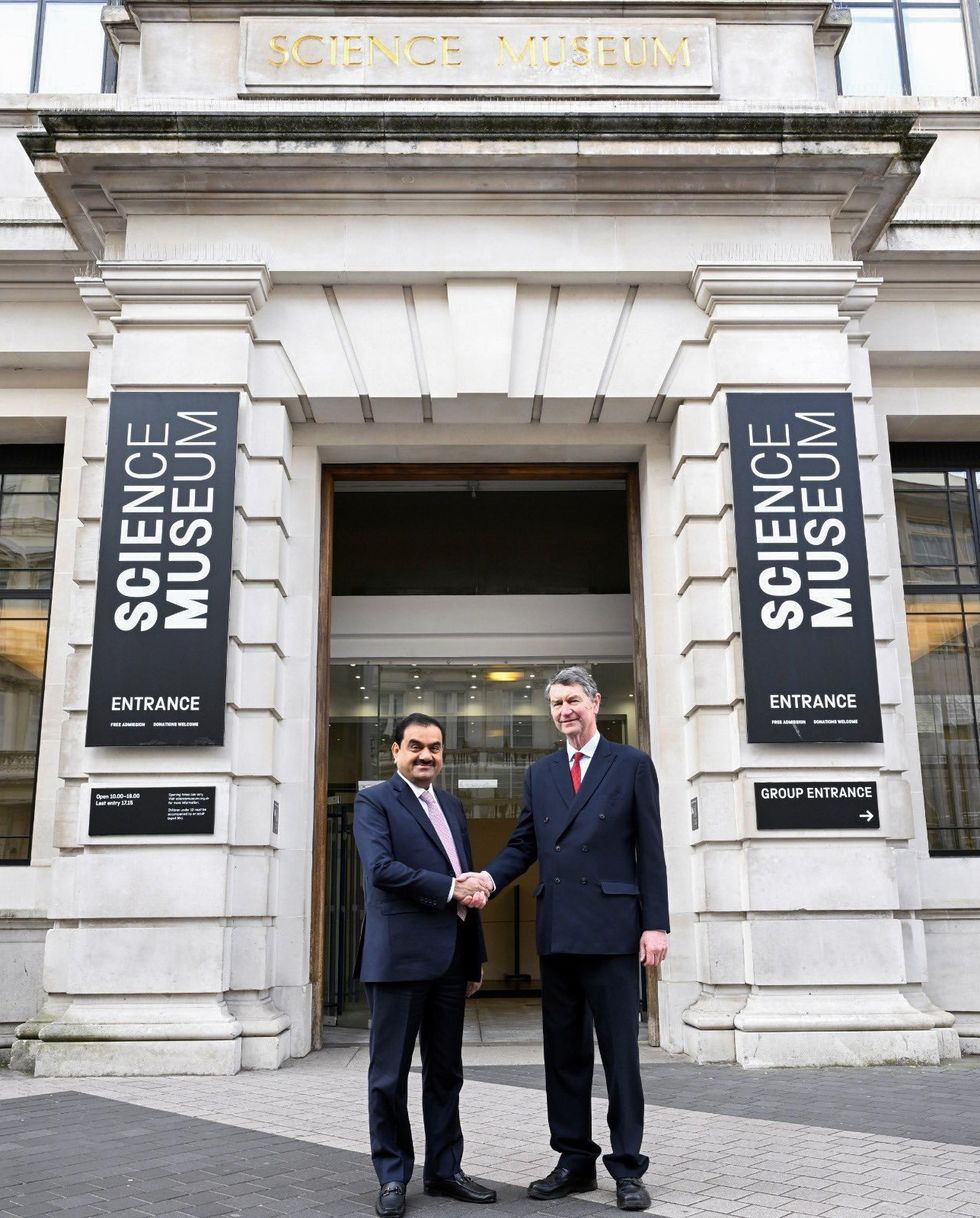
On wind turbine blades, Carpenter said “some of them are 100 metres high – this whole building is 30 metres. Some (blades) can be as high as the Eiffel Tower.”
Air-source heat pumps work in the opposite way to a domestic refrigerator – the former “takes heat from the ambient air and concentrates that into a home”.
He stopped by the terracotta pot cooling system from India that displays a note from Monish Siripurapu: “I’m an architect and founder of Ant Studio in Delhi. We invented CoolAnt cooling systems because powered air conditioning currently contributes over 10 per cent of global carbon emissions. CoolAnt is a modern version of the low-carbon passive cooling techniques used by our ancestors for thousands of years. It provides a cooling second skin for buildings in different climates by combining the magic of shading, wind-effect ventilation and evapotranspiration. We dress depending on the weather, so why shouldn’t our buildings do the same?”
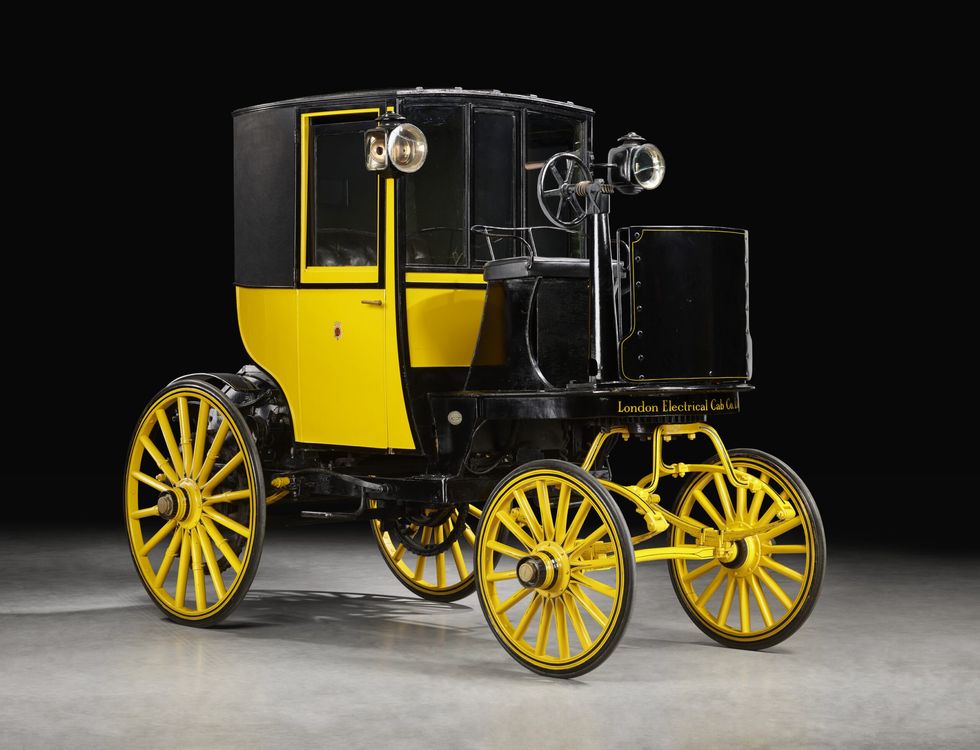
Carpenter commented: “This is a passive, air cooling, building façade. It’s a very old principle of evaporative cooling. The air flow gets concentrated by the shape of the pots. As water passes through these traditional terracotta pots, it takes some of the heat out of the air. It can keep buildings cool without an active, air-conditioning with electricity inputs. This is a new product that learns from traditional techniques.”
Back in India, the Adani Group, headed by Gautam Adani, has been a subject of controversy, but the gallery itself, funded by Adani Green Energy Ltd, cannot be faulted.
His nephew, Sagar Adani, executive director of Adani Green Energy, defended the investment: “The Science Museum has put together the world’s best curated gallery on energy transition. As one of the world’s largest renewable energy companies, we are dedicated to making progress towards net zero – and there is no greater resource in the fight against climate change than education.
“Through the sponsorship of the gallery, we aim to inspire young minds, scientists, and innovators to imagine a future powered by clean energy and build a carbon-free world. It is an initiative to stimulate their interest, curiosity and awareness, and encourage their active participation in creating clean technologies.
“The gallery brings together the global community to enable the shift towards energy efficiency, clean energy adoption and carbon emissions reduction. We hope the museum’s millions of visitors learn about the vital importance of renewable energy in tackling climate change.” He has been thanked by Sir lan Blatchford, director and chief executive of the Science Museum Group, who acknowledged the “vital funding from our generous sponsor, Adani Green Energy”.
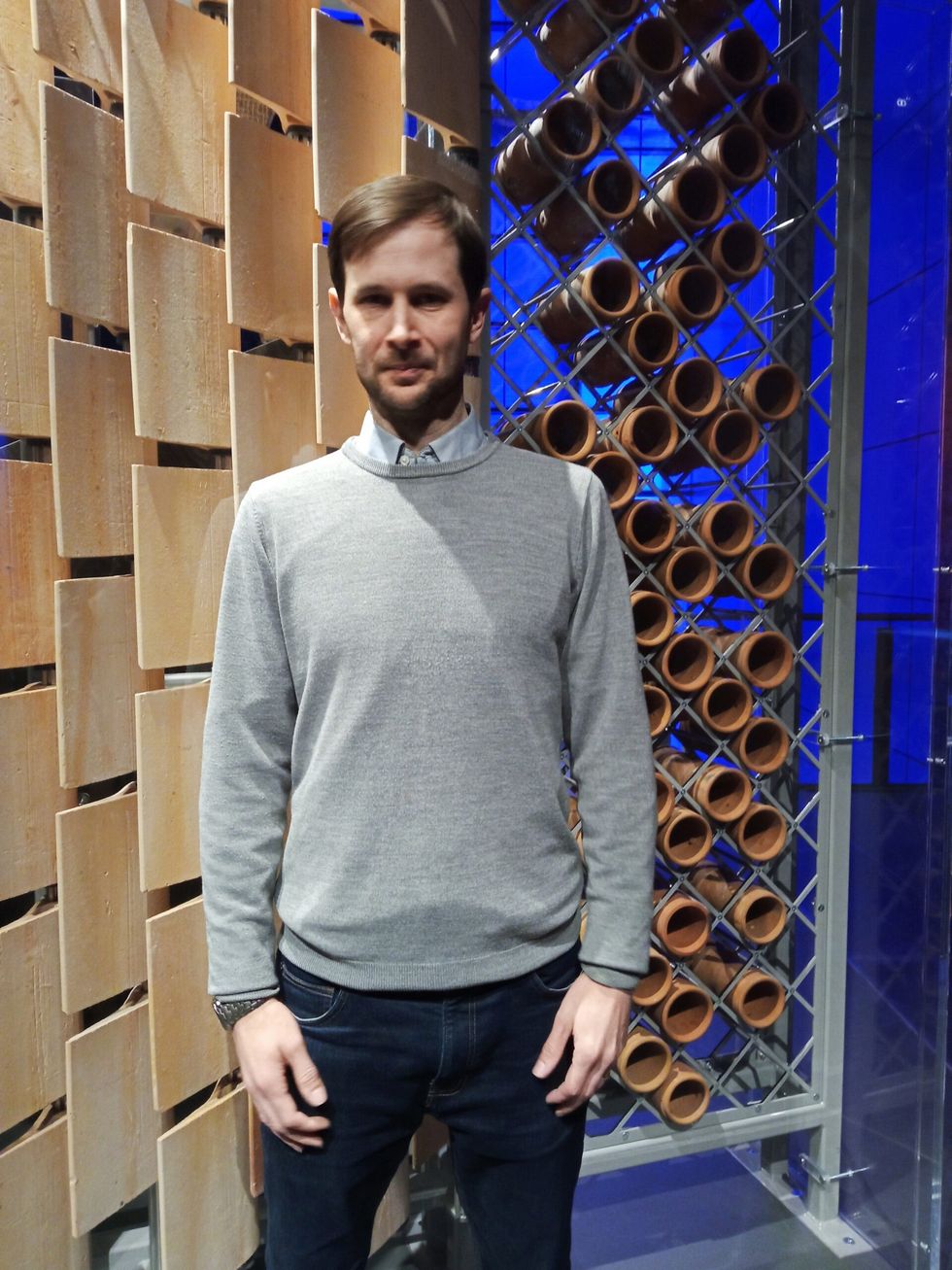
According to the Science Museum, the gallery examines this century’s defining challenge through the lens of imagination across three sections.
“In Future Planet, visitors can examine how climate scientists use mathematics and complex computer-based models to understand our planet, and what these tell us about the range of climate futures that might lie ahead.
“In Future Energy, technologies – and the people behind them – that are reimagining how energy is supplied and used today are highlighted alongside historic artefacts which provide a longer view of the energy transition away from fossil fuels.
“Our Future looks forward to a new world that is being dreamt up, with children’s creative ideas of how the world will meet its future energy needs displayed with expert responses to them.”






 Scotland fears US tariffs on £1bn Scotch exports
Scotland fears US tariffs on £1bn Scotch exports Donald Trump
Donald Trump












 Keir Starmer’s government inherited a policy vacuum on anti-Muslim prejudice
Keir Starmer’s government inherited a policy vacuum on anti-Muslim prejudice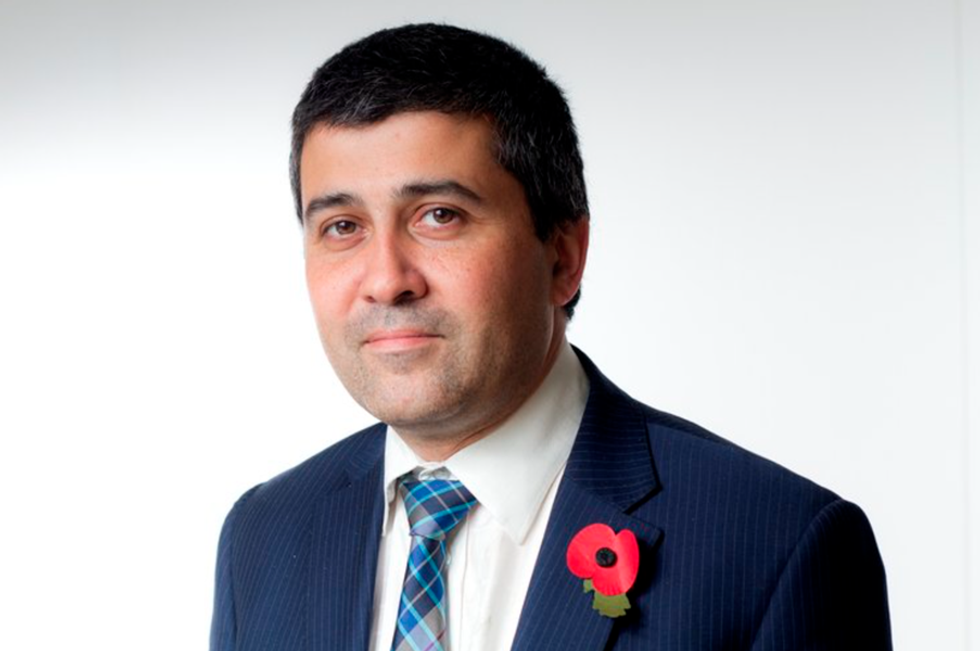

 In 1957, at the age of 20, he was appointed imam by his grandfather, Sultan Mohammed Shah Aga Khan III. (Photo: Getty Images)
In 1957, at the age of 20, he was appointed imam by his grandfather, Sultan Mohammed Shah Aga Khan III. (Photo: Getty Images) Queen Elizabeth poses with Aga Khan IV at Windsor Castle on March 8, 2018 before she hosts a private dinner in honour of the diamond jubilee of his leadership as Imam of the Shia Nizari Ismaili Muslim Community. (Photo: Getty Images)
Queen Elizabeth poses with Aga Khan IV at Windsor Castle on March 8, 2018 before she hosts a private dinner in honour of the diamond jubilee of his leadership as Imam of the Shia Nizari Ismaili Muslim Community. (Photo: Getty Images) Aga Khan IV was also deeply involved in horse racing, continuing a family tradition. (Photo: Reuters)
Aga Khan IV was also deeply involved in horse racing, continuing a family tradition. (Photo: Reuters) Aga Khan addresses the audience at an award ceremony and dinner during the 35th anniversary International Development convention at the Washington, DC Convention Center on March 18, 1987. (Photo: Reuters)
Aga Khan addresses the audience at an award ceremony and dinner during the 35th anniversary International Development convention at the Washington, DC Convention Center on March 18, 1987. (Photo: Reuters)
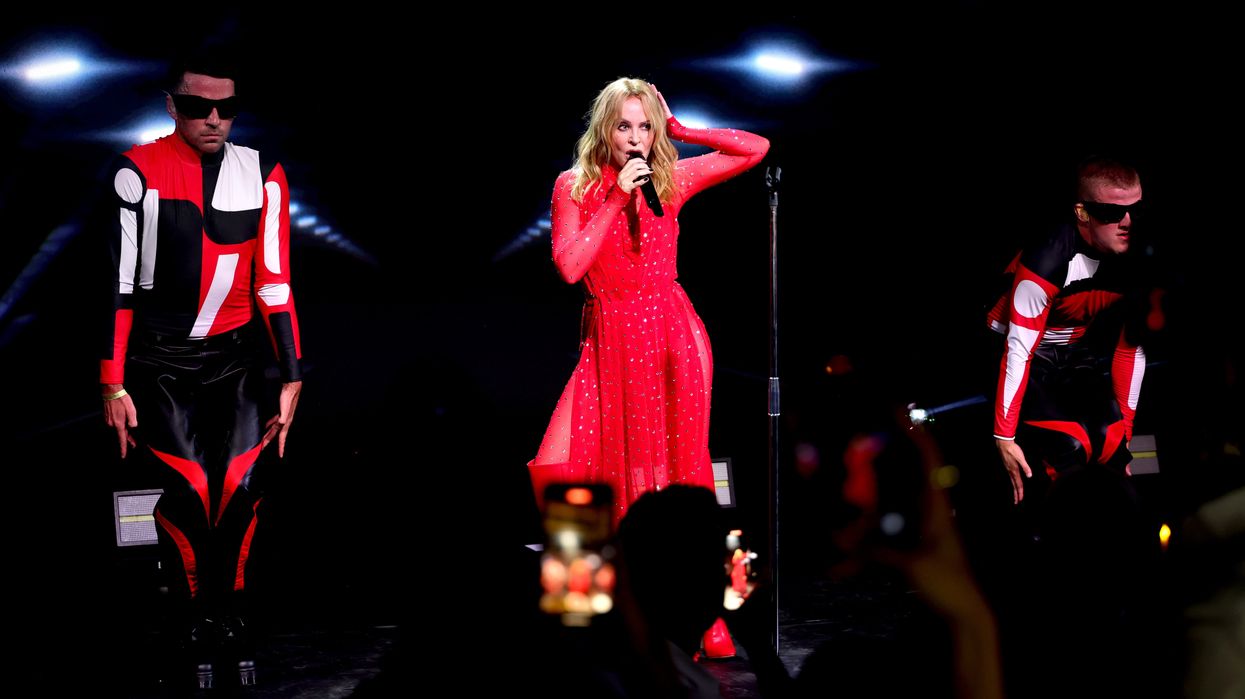 Kylie Minogue dazzles on stage at the Summer Gala in Saint-TropezGetty Images
Kylie Minogue dazzles on stage at the Summer Gala in Saint-TropezGetty Images